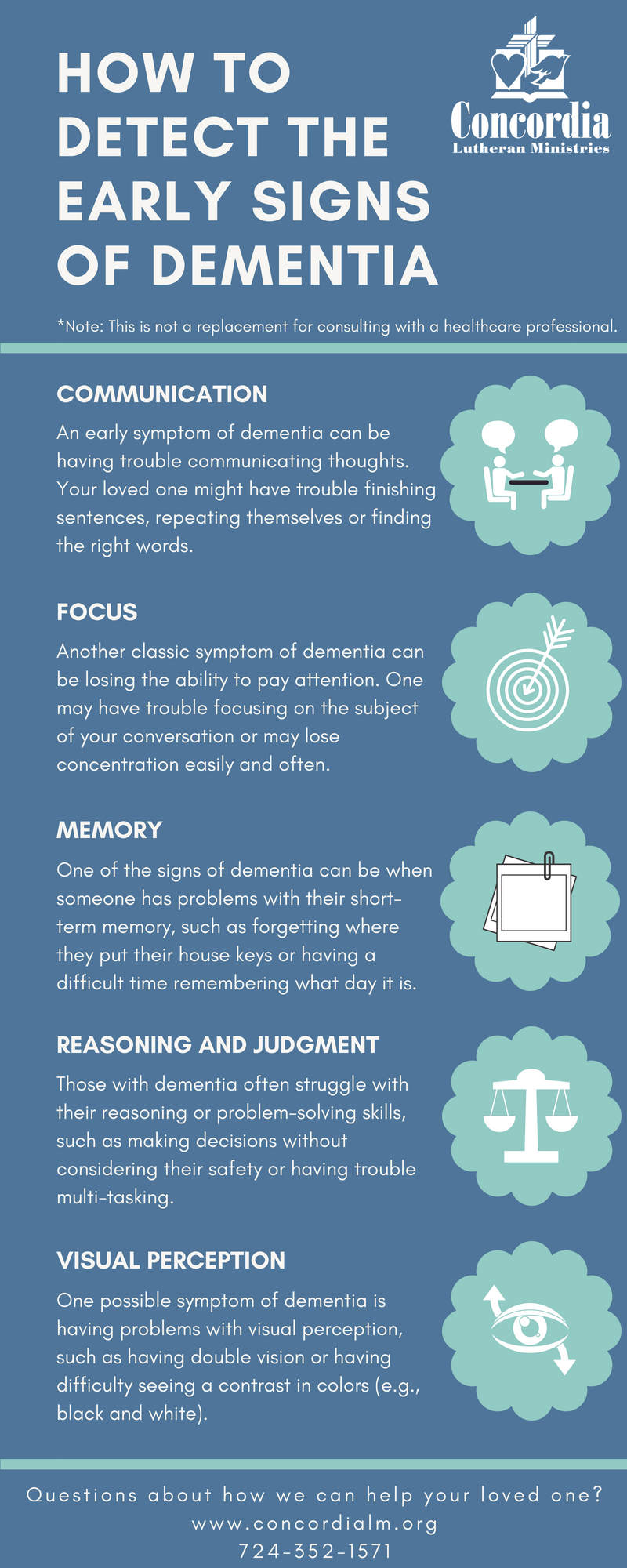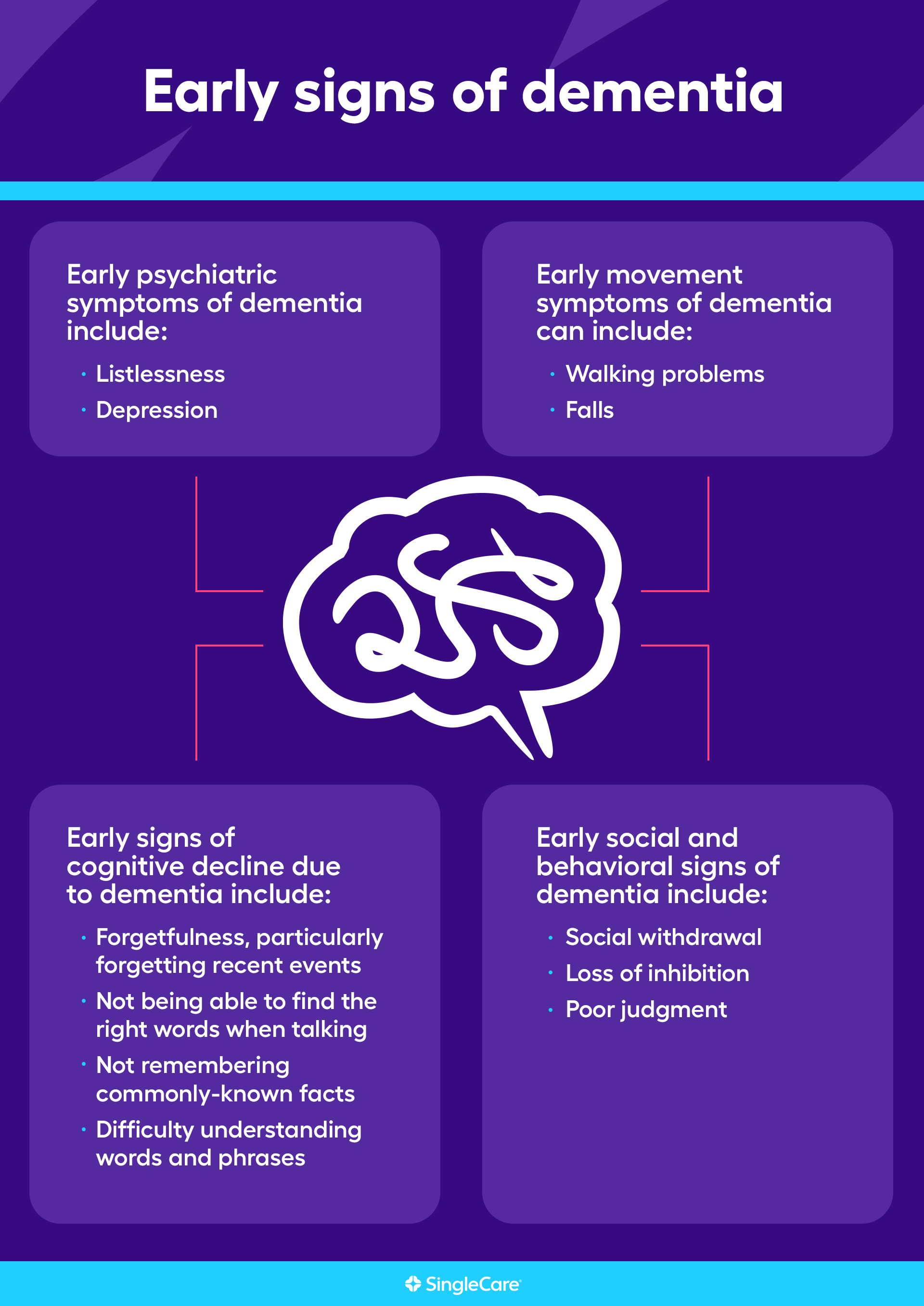Understanding the Impact of Dementia on Every Day Life and Caregiving
Mental deterioration influences every day life in extensive means, affecting not just those detected however additionally their caretakers. As cognitive decline progresses, you could notice changes in interaction and routine that obstacle both celebrations. Comprehending these shifts is essential for preserving dignity and engagement. But exactly how do you adjust your caregiving methods to sustain someone traversing this facility trip? The answers might stun you as we discover the subtleties of this experience.
The Phases of Mental Deterioration and Their Effects on Every Day Life
As you navigate the trip of mental deterioration, comprehending its phases can substantially influence how you manage day-to-day live. Dementia commonly progresses through three primary stages: early, middle, and late. In the onset, you may discover occasional memory lapses or problem locating the right words. This can cause aggravation, yet recognizing these indicators early assists you adapt your regular and seek support.
During the center phase, you'll experience much more noticeable cognitive decline. Daily tasks may come to be difficult, and keeping your self-reliance might need changes. Making use of pointers and streamlining your atmosphere can aid.
In the late stage, people usually need considerable help with daily activities. Planning for care comes to be important, focusing on comfort and quality of life. By recognizing these phases, you're much better furnished to react proactively, guaranteeing you or your enjoyed one can browse the obstacles with dignity and grace.

Modifications in Interaction and Social Communication
Just how do changes in interaction affect your daily interactions as dementia progresses? As dementia advances, you may observe that basic discussions come to be challenging. Words may leave you, or you might have a hard time to discover the best phrases. This can cause frustration for both you and your liked ones. Nonverbal cues, like motions or faces, end up being progressively vital.
You might discover it easier to connect via these ways rather of relying exclusively on spoken language. Paying attention skills can additionally alter; you may discover it tougher to adhere to conversations or remember what was just stated (Early Onset Dementia). This can lead to misunderstandings or feelings of isolation
Urging persistence and developing an encouraging environment can aid. Taking part in activities that foster link, like songs or art, can boost social communications. Bear in mind, preserving relationships is still possible; it's almost adapting to new means of connecting.
Effect On Daily Routines and Activities
While navigating daily regimens, you'll likely notice that tasks you when finished easily ended up being more challenging as mental deterioration advances. You could discover on your own forgetting actions in acquainted regimens or battling to recall where you positioned items.
Planning your day can really feel overwhelming, making it more challenging to stick to a schedule. You may need reminders for visits or to take medications. Adapting your environment can assist; as an example, classifying things or using checklists can streamline jobs. Involving in repetitive, structured activities can also give comfort and a sense of success. Keep in mind, it's fine to request help. Surrounding on your own with encouraging close friends or family members can make managing these changes a little bit easier.
Behavior and emotional Challenges
Steering with everyday regimens can produce not just sensible obstacles, yet additionally psychological and behavioral ones. You could observe adjustments in state of mind, such as increased anxiety or stress, which can stem from complication or problem in completing tasks. As you browse these moments, it is important to identify that your enjoyed one may share their feelings through actions like agitation or withdrawal.
These emotional actions can be unpredictable and may emerge without caution, leaving you both sensation bewildered. You might find that acquainted settings or routines can help in reducing anxiousness, yet keeping persistence ends up being significant. It is essential to verify their feelings, even if you don't completely comprehend them.
The Role of Caregivers in Supporting People With Dementia
As a caretaker, you play a necessary duty in offering psychological assistance for people with dementia. Developing everyday care routines can produce a sense of stability and comfort, helping to ease their anxiety. By recognizing their needs and making use of efficient approaches, you can significantly enhance their lifestyle.
Emotional Support Techniques
When caring for somebody with dementia, comprehending the emotional landscape is crucial for supplying reliable support. Easy motions, like holding their hand or maintaining eye contact, can produce a feeling of protection. Ultimately, do not neglect to take treatment of your very own emotional requirements; looking for assistance for yourself can improve your ability to care for them.
Daily Care Routines
Developing daily care routines is necessary for supplying security and convenience to people with dementia, as these routines can help in reducing complication and stress and anxiety. You can begin by detailing a consistent timetable for dishes, tasks, and rest. This predictability aids your liked one really feel more safe and secure and involved.
Integrate familiar tasks, like folding laundry or watering plants, which can evoke positive memories and promote a sense of accomplishment. Use visual signs, such as schedules or checklists, to guide them through the day.
Be flexible, though; adapt regimens as required based on their state of mind or energy degrees. Early Onset Dementia. Keep in mind, your persistence and understanding are vital in steering their changing needs, guaranteeing they feel supported and valued throughout their every day life
Creating a Safe and Comfy Living Environment
Developing a comfortable and secure living setting is important for individuals with mental deterioration. You'll intend to make home safety alterations that lower risks and ensure knowledge to supply a feeling of comfort. By concentrating on these facets, you can aid develop a space that sustains both safety and security and well-being.
Home Safety And Security Alterations
As you navigate the obstacles of mental deterioration, making home safety and security alterations can significantly enhance comfort and safety. Begin by getting site web rid of tripping hazards like rugs and clutter, ensuring walkways are clear. Set up grab bars in shower rooms and non-slip floor coverings in the shower to stop falls. Take into consideration utilizing brighter lighting and night lights to boost exposure, especially during nighttime. Label important locations, such as the restroom and cooking area, with clear indicators to aid with alignment. Protect any sharp objects or toxic substances out of reach. Furthermore, analyze your home's alarms and locks to verify they're user-friendly and provide peace of mind. These alterations not only advertise security but also motivate independence, allowing your liked one to really feel more at ease in their environment.
Convenience and Knowledge
After making certain a secure setting with essential modifications, cultivating convenience and experience is necessary for people with dementia. Maintain a consistent regular to aid them really feel grounded and reduce anxiety. Involving in acquainted activities, such as listening to songs or horticulture, can improve their sense of belonging, making their living setting a real haven.
Strategies for Reliable Caregiving and Assistance
While navigating the challenges of mental deterioration care can feel frustrating, carrying out effective strategies can substantially enhance both the caregiver's and the person's everyday experience. Start by developing a routine; predictability helps in reducing stress and anxiety for both you and your enjoyed one. Usage clear, simple interaction-- short sentences and direct inquiries can prevent complication.

Don't forget to take care of on your own; timetable breaks and get in touch with support system. Sharing experiences with others in comparable circumstances can supply important insights and psychological alleviation.
Finally, remain patient and adaptable. Mental deterioration can bring unforeseeable changes, so adjusting your technique is necessary. By utilizing these strategies, you can foster an extra positive environment that profits both you and your liked one.
Frequently Asked Inquiries

What Are the Different Sorts Of Dementia?
You'll find several kinds of dementia, website here including Alzheimer's, vascular mental deterioration, Lewy body mental deterioration, and frontotemporal mental deterioration. Each type affects memory and cognitive feature in different ways, so comprehending the differences is important for appropriate diagnosis and care.
Just How Can I Assist Someone With Early-Stage Dementia?
You can help someone with early-stage mental deterioration by being person, offering support, and urging them to engage in activities they appreciate. Keeping routines consistent and maintaining open interaction can additionally make a substantial distinction in their day-to-day live.
Are There Financial Resources Available for Mental Deterioration Treatment?
Yes, there are funds readily available for mental deterioration care. You can explore federal government help programs, nonprofit organizations, and insurance policy choices. It's also sensible to get in touch with regional agencies for particular resources customized to your circumstance.
What Legal Factors To Consider Should Caregivers Recognize?
As a caretaker, you must consider power of lawyer, health care proxies, and guardianship laws. It's vital to comprehend the legal civil liberties and responsibilities you hold, guaranteeing your loved one obtains suitable treatment and protection.
Just How Can I Handle Caretaker Anxiety?
You can handle caretaker stress by focusing on self-care, seeking assistance from buddies or teams, setting practical expectations, taking breaks, and exercising leisure techniques. Bear in mind, your well-being matters just as high as the person you're taking care of.
Recognizing the Impact of Mental Deterioration on Daily Life and Caregiving.
As you browse the journey of dementia, recognizing its phases can noticeably influence how you handle day-to-day life.While maneuvering everyday regimens, you'll likely discover that jobs you when completed easily come to be more difficult as mental deterioration proceeds.Developing daily care routines is necessary for giving stability and comfort to individuals with mental deterioration, as these regimens can aid reduce helpful site confusion and stress and anxiety.While navigating the obstacles of mental deterioration treatment can really feel frustrating, implementing effective techniques can considerably boost both the caretaker's and the person's daily experience.